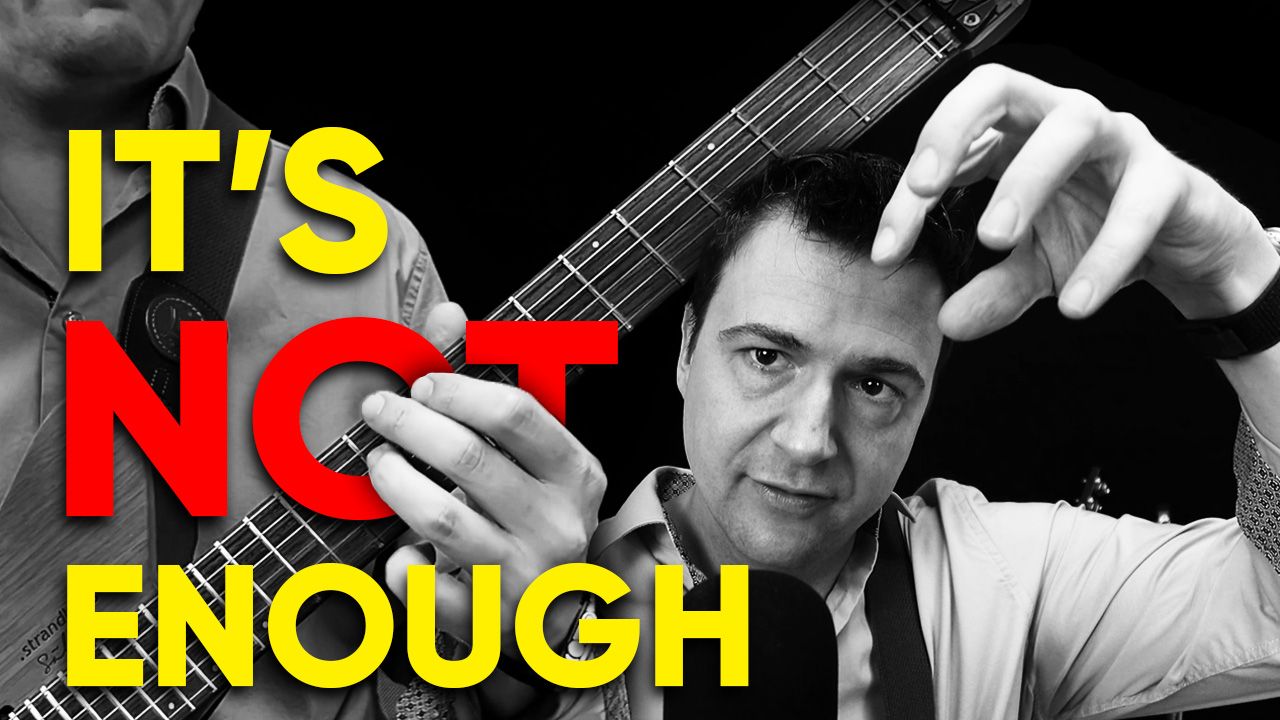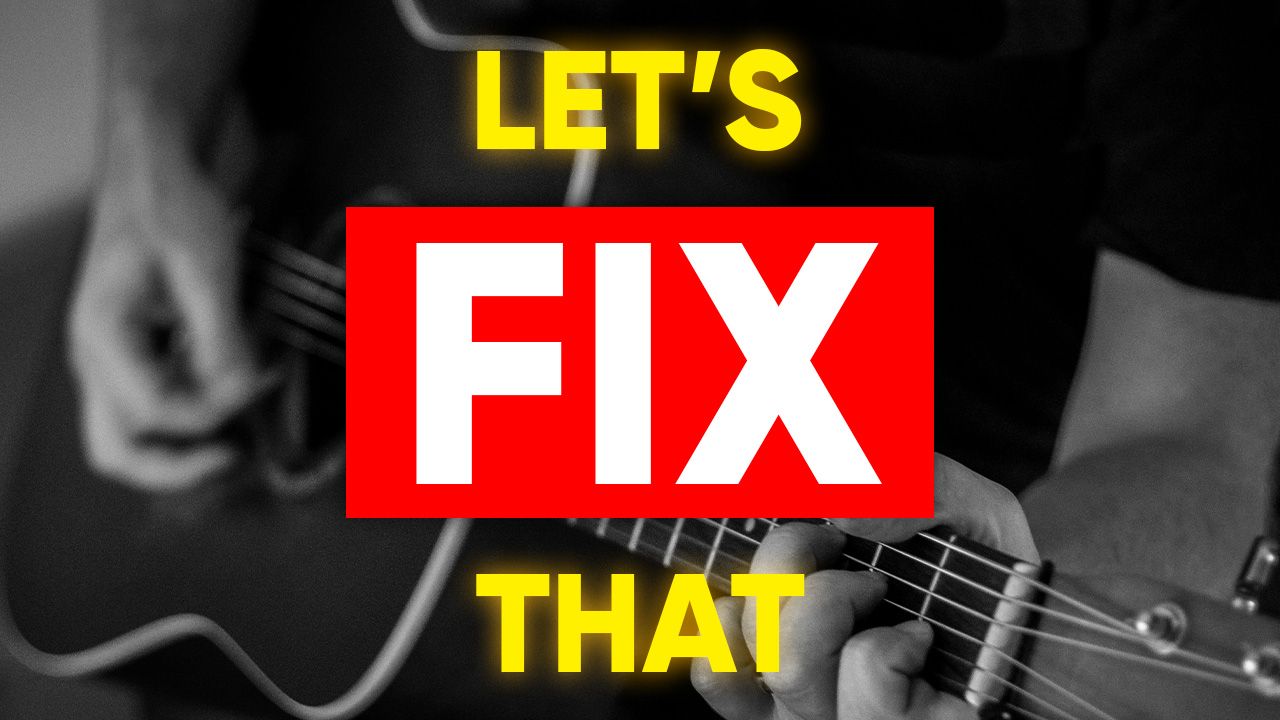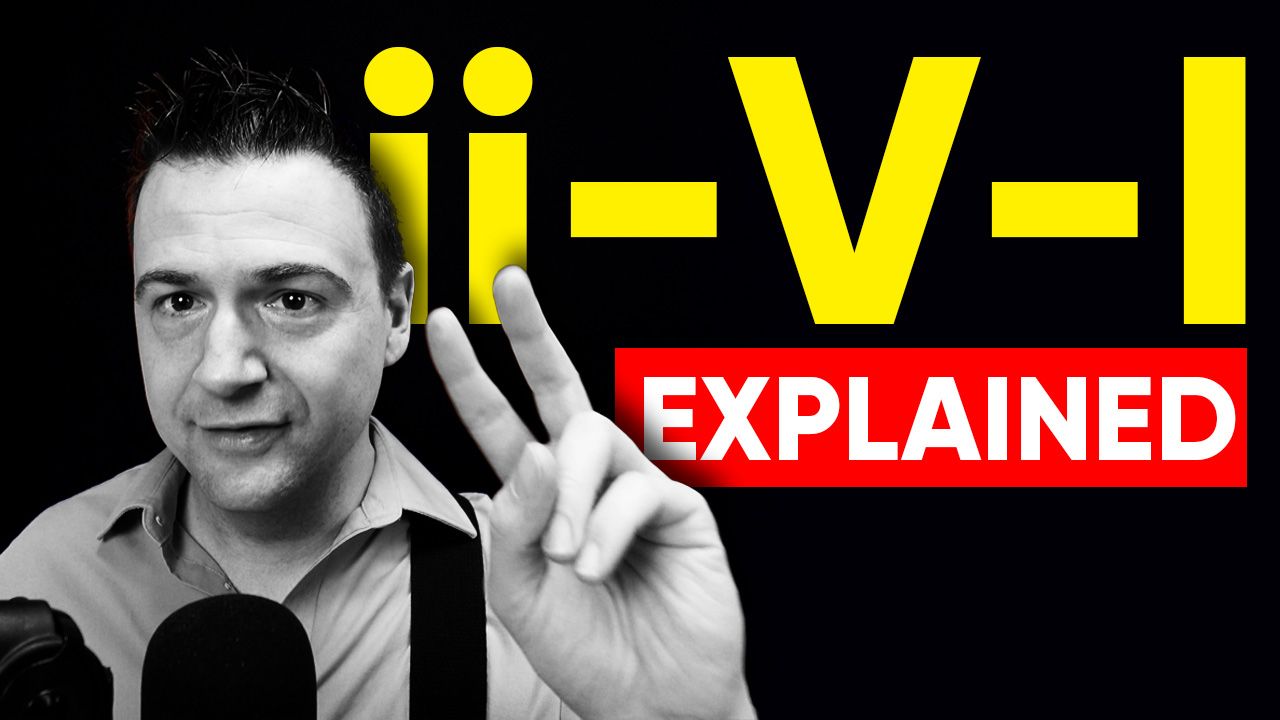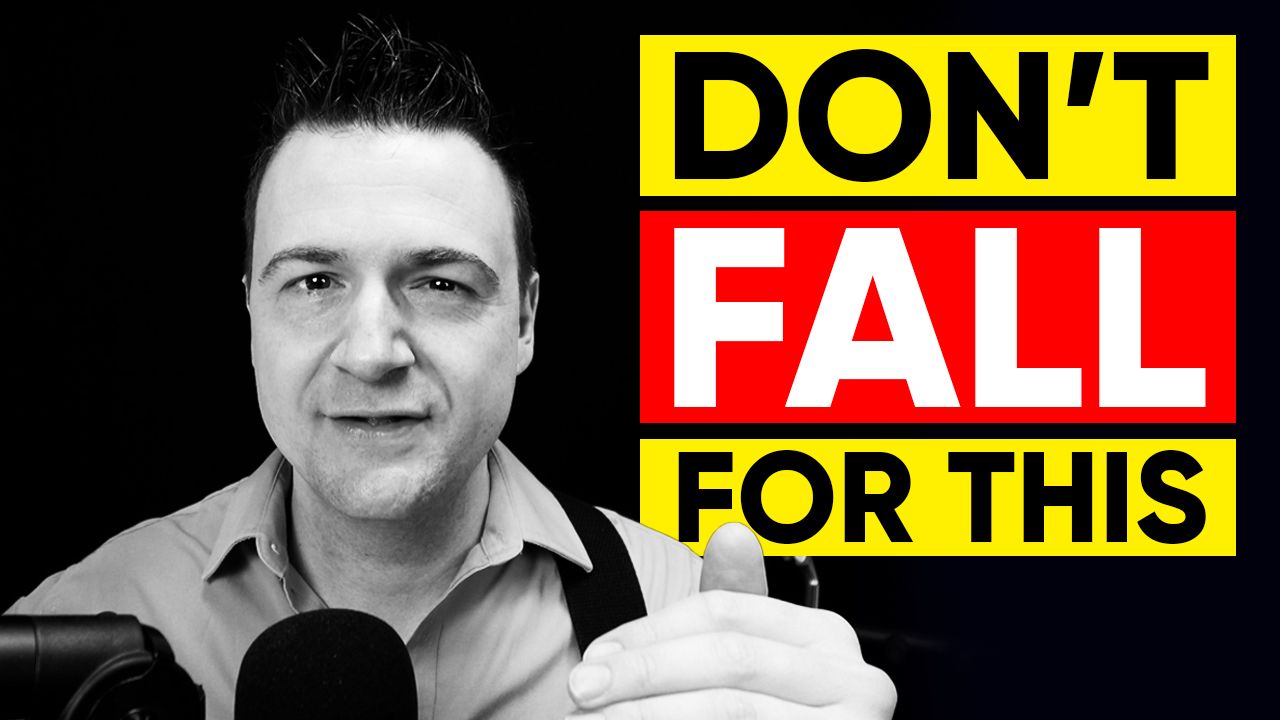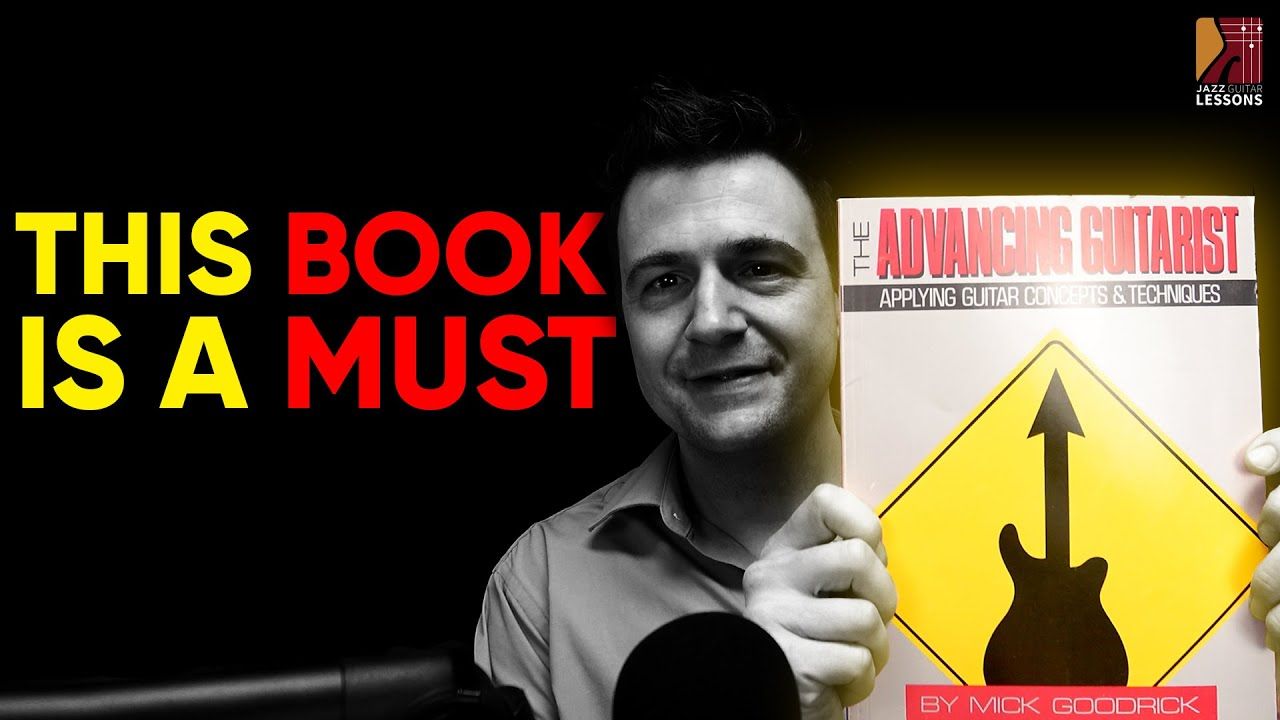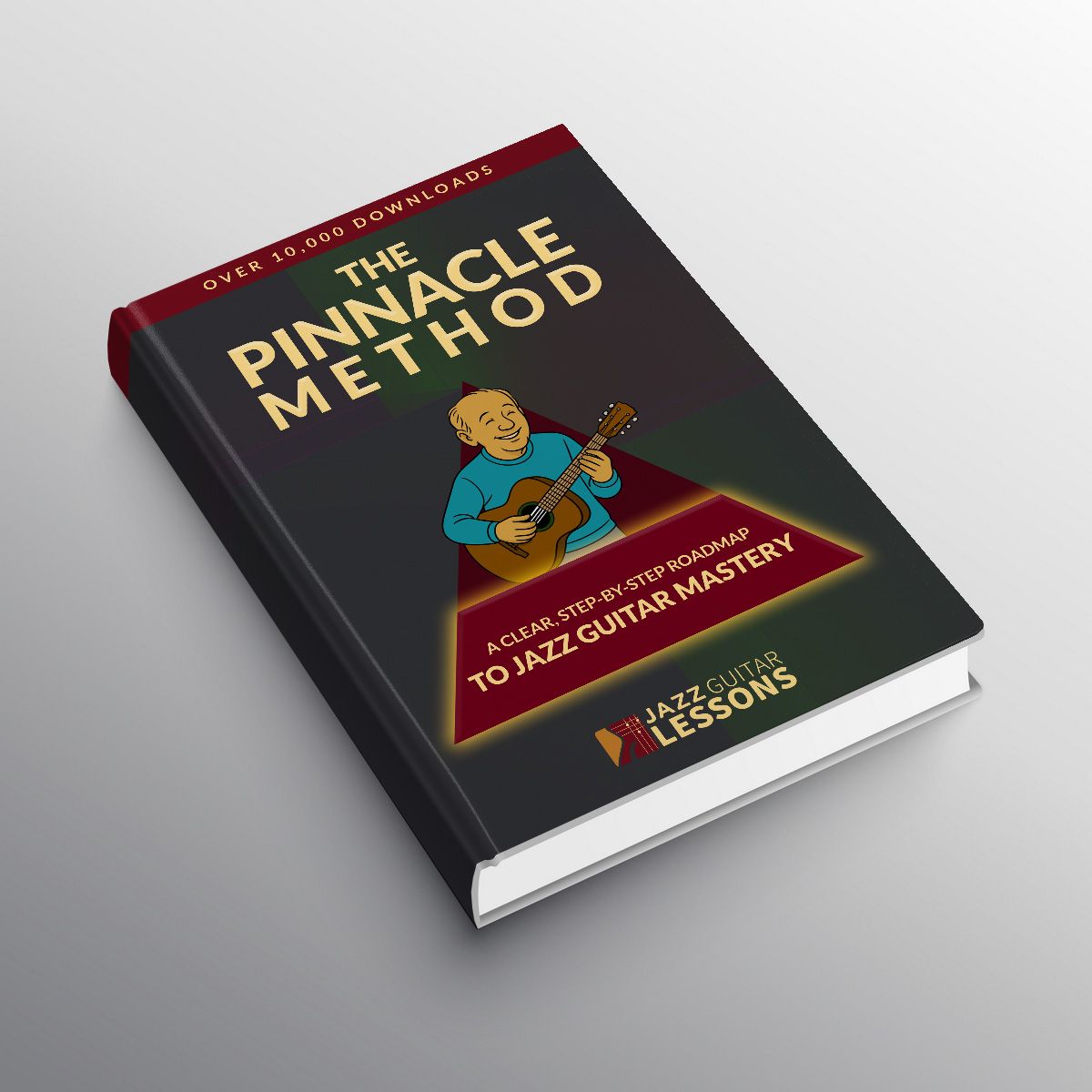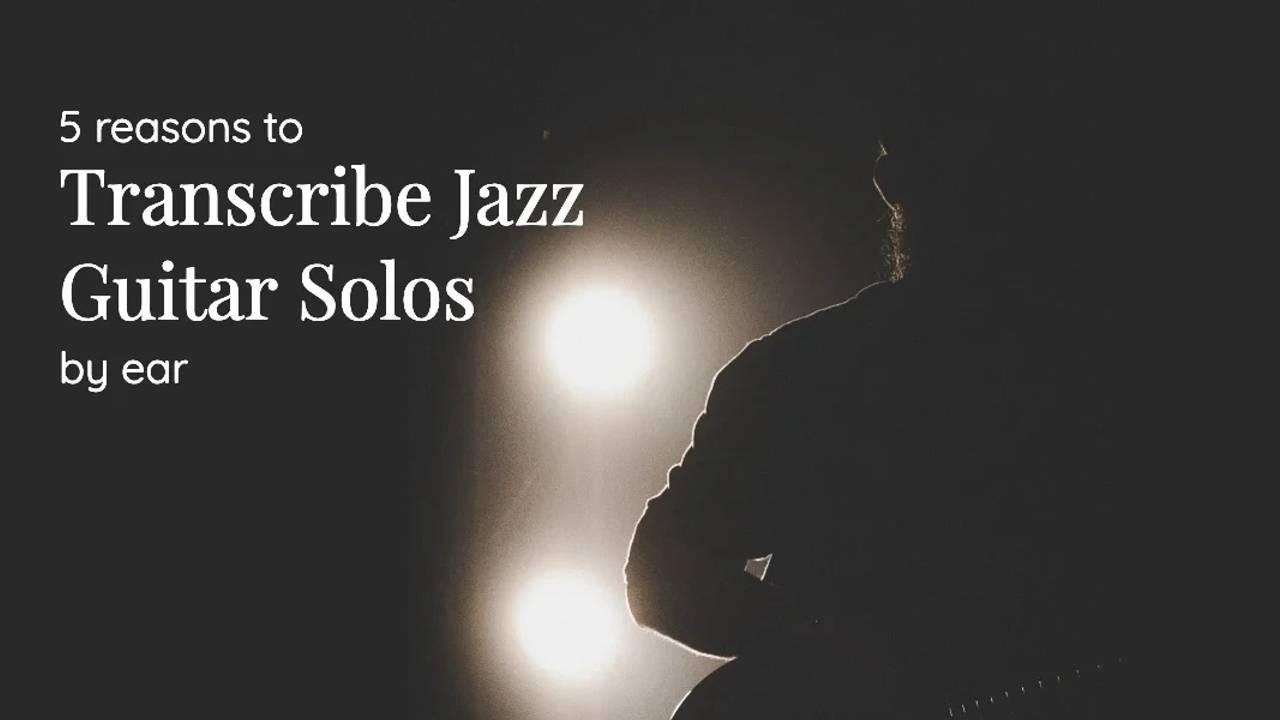
5 Reasons to Transcribe Jazz Guitar Solos by Ear
May 03, 2021A lot of players transcribe jazz guitar solos during their practice time. If you are not doing it, maybe it is because you do not see the benefits (yet). We are convinced that you know a handful of jazz solos you really enjoy listening to and in this blog post, we will give you 5 reasons explaining why you should transcribe these great jazz solos by ear.
The 5 reasons to transcribe jazz guitar solos:
-
It is an Incredible Ear Training Exercise
-
It Puts the Theory to Work
-
It Improves Your Technique
-
You Absorb the Language
-
It Takes You Closer to Your Goals
A word of advice: You should learn jazz solos you really like and enjoy to see the full benefit of the activity. Learning a solo you are not excited about will feel more like a chore than playing music.
1- It is an Incredible Ear Training Exercise
Here is our proposition of how to transcribe jazz guitar solos:
- Listen to a small chunk of the solo.
- Try to play it.
- Re-listen to the chunk.
- Get it right.
- Repeat Step 1 with the next chunk.
- Scotch-Tape the two chunks.
Don’t be intimidated. Learning a solo by ear, chunk by chunk will train your ear much more efficiently than traditional ear training exercises. By putting effort into transcribing someone else’s solo, you will have to be aware of the time, the various rhythm accents, and the sound you produce.
When you start to Transcribe jazz guitar solos by ear, you will begin recognizing intervals, the sound of arpeggios, the various techniques the soloist uses, etc. You will struggle at first but that struggle will greatly improve your ears. That's why many players say that the more you transcribe, the easier it gets. We guarantee you that all the work you will put into learning jazz solos by ear will pay off.
2- It Puts the Theory to Work
Most of us practice scales, arpeggios, patterns, and chord changes on our jazz guitar journey. Transcribing solos is actually a great and fun way to practice all these devices in the context of something much more exciting than exercises from books.
Transcribing solos and really learning them well (by identifying where each line falls in the changes of a song) will show you how you can use this theory to great make music. It will then give you ideas based on your knowledge to improvise and find your comfort zone... then break away from it.
WARNING: Do not transcribe a solo and try to find a theoretical sense in every single phrase you hear. Enjoy the music :-).
3- It Improves Your Technique
In the same way that it trains your ears when you transcribe jazz guitar solos, it improves your jazz guitar technical skills.
Many times, you will be confronted with unfamiliar phrases that make you step up your technical abilities (i.e. playing faster than you are used to, improving your pull-offs, playing octaves, etc.) If you are being sincere with yourself while transcribing, your technical abilities will improve as long as you commit to really nail every line down perfectly.
4- You Absorb the Language
Jazz is a language and I'm sure it's not the first time read that!
If you ever learned a second language you know that repeating what fluid speakers are saying is the best way to absorb the language and it helps you be more fluid.
Great jazz solos are a goldmine of jazz knowledge in the form of language. Even by just learning a small part of a solo (a lick you really enjoy for example), you are practicing the language! You are practicing the various accents and rhythms of speech.
Do not only transcribe jazz guitar solos. Learn saxophone, trumpet and vocal solos for example. That exposes you to a broad demonstration of the jazz language for you to learn.
5- It Takes You Closer to Your Goals
Have you always wanted to play like [name of your jazz guitar hero]?
Well, indeed practicing scales, arpeggios and intervals is a must but it will not get you to play like that legendary player. Transcribing solos will make you explore your hero’s playing and from that, you can just mimic what you transcribed and eventually innovate from it.
By walking into your hero's shoes, so to speak, you start to understand your hero’s thinking and you will integrate his influence into your playing. Before your know it, you will play the way you wanted to play!


